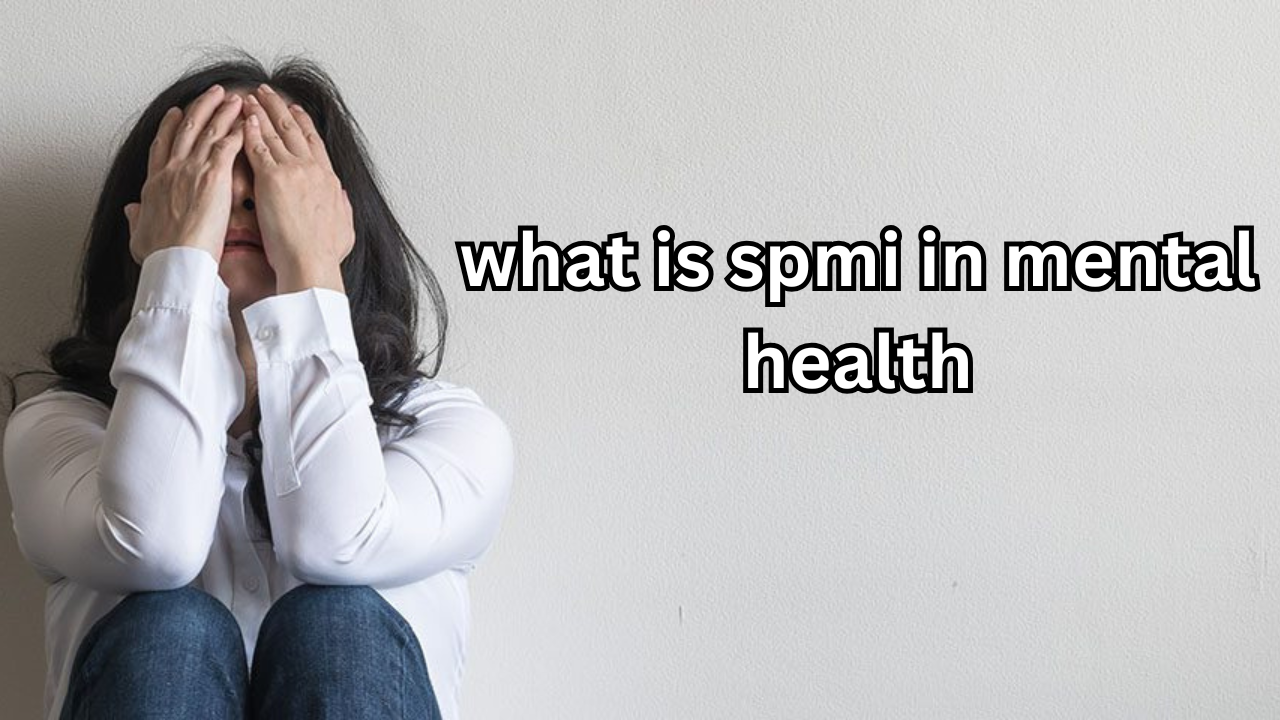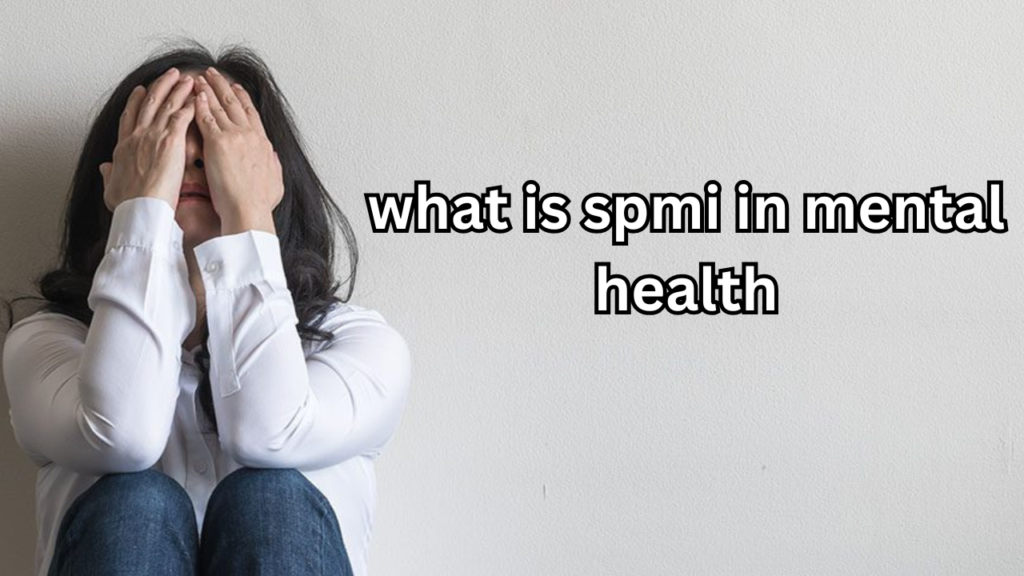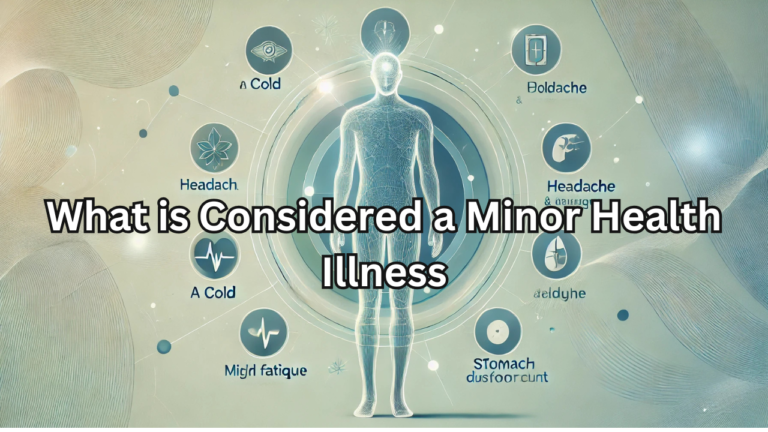

Table of Contents
Introduction:
Understanding mental health is crucial for providing effective care and support to individuals facing various challenges. One significant area of focus is Severe and Persistent Mental Illness (SPMI), which encompasses a range of mental health conditions that are both chronic and disabling. What is SPMI in mental health? Simply put, it refers to severe mental health disorders that persist over time and significantly impact a person’s ability to function in daily life. These conditions often require long-term management and support from healthcare providers, families, and the community.
The importance of understanding SPMI cannot be overstated. For patients, knowing their diagnosis and how to manage their symptoms can improve quality of life and enable better self-care. For families, understanding SPMI allows them to offer the right kind of emotional and practical support. Healthcare providers benefit from an in-depth understanding of SPMI, as it helps them to deliver tailored treatment plans that address the unique needs of individuals living with these conditions. By gaining insight into what SPMI in mental health means, all parties can work together to improve outcomes and provide holistic support for those affected.
What Does SPMI Mean?
SPMI stands for Severe and Persistent Mental Illness, a term used to describe a group of mental health disorders that are long-lasting and significantly impair an individual’s ability to function in everyday life. These conditions, which can include schizophrenia, bipolar disorder, and severe depression, require ongoing treatment and support to manage their symptoms. The SPMI meaning highlights the chronic nature of these illnesses, emphasizing the need for continuous care and intervention to help individuals cope with their challenges.
It is important to understand how SPMI vs SMI differ. While both terms refer to serious mental health conditions, SPMI specifically denotes disorders that not only have a severe impact but also persist over time, often affecting individuals for years or even their entire lives. SMI, or Serious Mental Illness, is a broader term that includes any severe mental health condition, but it doesn’t necessarily indicate the long-term persistence of symptoms. SPMI, therefore, can be seen as a subset of SMI, with a focus on those disorders that are both severe and enduring. This distinction is important for mental health professionals when determining treatment approaches and long-term care strategies for those affected.
SPMI Criteria
To accurately diagnose and understand SPMI, mental health professionals rely on specific criteria that define the severity and persistence of a mental illness. These SPMI criteria typically involve a combination of clinical evaluations and assessments that consider the duration and intensity of symptoms, as well as their impact on a person’s ability to function in daily life. Key indicators often include:
- A history of severe mental health symptoms lasting for at least two years.
- Significant functional impairment, affecting areas such as work, relationships, or self-care.
- A need for ongoing psychiatric care or support to manage symptoms.
- Resistance to or lack of improvement with standard treatments or interventions.
When conducting an SPMI assessment, mental health professionals assess not only the current state of symptoms but also the individual’s history and how the illness has affected their quality of life over time. In Minnesota (MN), specific criteria are applied to ensure accurate identification and support for those with SPMI. For instance, the state considers the severity of symptoms alongside functional impairment, with particular focus on the individual’s ability to access and benefit from community resources and support systems. These regional considerations ensure that individuals with SPMI in Minnesota receive the appropriate level of care tailored to their unique needs.
List of SPMI Diagnoses
What is SPMI in mental health? Severe and Persistent Mental Illness (SPMI) includes a range of mental health disorders that are not only severe but also long-lasting, often requiring ongoing treatment and care. Several conditions fall under the category of SPMI, with each one impacting an individual’s ability to function in daily life. These disorders typically involve chronic symptoms that persist for years, making continuous management and support essential.
Common diagnoses that are categorized as SPMI include:
- Schizophrenia – A severe mental illness that affects how a person thinks, feels, and behaves. Symptoms often include hallucinations, delusions, and cognitive impairments.
- Bipolar Disorder – A mood disorder marked by extreme mood swings, including manic episodes and depressive episodes, which can interfere with daily functioning.
- Major Depressive Disorder (MDD) – When depression becomes chronic and severely impacts a person’s ability to function, it may be classified as an SPMI diagnosis.
- Schizoaffective Disorder – A condition that combines features of both schizophrenia and mood disorders, such as depression or bipolar disorder.
- Post-Traumatic Stress Disorder (PTSD) – In some cases, when PTSD symptoms are long-lasting and significantly impair daily life, it may meet the criteria for SPMI.
These are just a few examples of conditions that are commonly diagnosed as SPMI. Each diagnosis typically has its own set of treatment protocols and management strategies to help individuals cope with their symptoms and improve their quality of life.
In addition to clinical diagnoses, SPMI diagnosis codes are used for insurance and treatment purposes. These codes, such as those in the DSM-5 (Diagnostic and Statistical Manual of Mental Disorders), help mental health professionals identify specific disorders and ensure proper billing and treatment planning. Examples of these codes include:
- Schizophrenia: F20.9
- Bipolar I Disorder: F31.9
- Major Depressive Disorder: F33.9
By understanding the SPMI diagnosis codes and the wide range of conditions classified under SPMI, healthcare providers can offer tailored care and resources that best meet the needs of individuals with severe and persistent mental illnesses.
SPMI Interface and Support Systems
Individuals with SPMI often face significant challenges in managing their conditions, which is why the SPMI interface with mental health services plays a critical role in their care. The term “interface” refers to the way in which individuals with severe and persistent mental illness interact with various healthcare systems, including mental health professionals, community resources, and social support networks. These interactions are essential for ensuring that individuals receive comprehensive care that addresses not only their mental health symptoms but also their overall well-being.
For individuals with SPMI, the healthcare journey is rarely a linear process. Instead, it involves a combination of inpatient and outpatient care, therapy, medication management, and long-term support from social workers, family members, and peer support groups. The SPMI interface is multi-faceted, requiring coordination between mental health professionals, primary care providers, and other specialists to address the wide-ranging needs of the individual. This integration of services ensures that all aspects of a person’s health—physical, mental, and emotional—are being addressed effectively.
One of the most critical elements of supporting individuals with SPMI is the integration of care systems and resources. Mental health care should not be siloed; rather, it needs to be coordinated with other social services, housing assistance, employment support, and family counseling. By integrating these systems, individuals with SPMI are more likely to experience improved outcomes, such as better management of symptoms, improved quality of life, and a higher level of independence. Healthcare providers, social services, and family members must work together to create a comprehensive support system that addresses both the clinical and personal challenges of living with severe and persistent mental illness.
In this way, an effective SPMI interface ensures that individuals with severe mental health conditions are not left to navigate the complexities of their illness alone. Through well-coordinated support systems, they can access the resources they need to lead healthier, more fulfilling lives.
Differences Between SPMI and SMI
When discussing severe mental health conditions, it’s important to understand the distinction between SPMI vs SMI. While both terms refer to serious mental health disorders, they differ in key areas such as severity, persistence, impact on daily life, and treatment approaches.
- Severity and Persistence: One of the main differences between SPMI vs SMI lies in the duration and intensity of the illness. SPMI (Severe and Persistent Mental Illness) refers to conditions that are not only severe but also long-lasting, often persisting for years or even a lifetime. These disorders typically require ongoing treatment and management to control symptoms. On the other hand, SMI (Serious Mental Illness) is a broader term that encompasses severe mental disorders but does not necessarily imply long-term persistence. SMI includes both temporary and chronic conditions, and some individuals may experience episodes of illness that improve over time with treatment.
- Impact on Daily Life: The impact on daily life is another important distinction between SPMI vs SMI. Individuals with SPMI often experience significant and long-term disruption in their ability to function in daily activities such as work, social relationships, and self-care. The persistence of symptoms in SPMI typically leads to chronic functional impairments, requiring substantial ongoing support. In contrast, SMI may include disorders that, while severe, may not have the same level of long-term impairment. Some individuals with SMI may experience periods of stability or remission, allowing them to lead more independent lives during those times.
- Treatment Approaches: Treatment approaches for SPMI vs SMI also differ, with SPMI requiring more intensive, long-term care. Individuals with SPMI often need continuous mental health services, including therapy, medication management, and social support. The treatment plans for these conditions are usually highly individualized and may involve multiple healthcare providers and community resources. In contrast, treatment for SMI may be less intensive if the condition is episodic or manageable with shorter-term interventions. Individuals with SMI may not require as much ongoing care if their symptoms are controlled and functional impairments are less severe.
SPMI Assessment and Diagnosis
Diagnosing SPMI (Severe and Persistent Mental Illness) requires a comprehensive SPMI assessment conducted by qualified mental health professionals. This process involves evaluating a person’s mental health history, current symptoms, and functional impairments to determine whether their condition meets the criteria for SPMI. The goal of the SPMI assessment is to identify the specific nature of the illness and create a tailored treatment plan that addresses the individual’s unique needs.
The steps in conducting an SPMI assessment typically include:
- Initial Evaluation: The first step in an SPMI assessment is an initial evaluation, which includes gathering detailed information about the patient’s medical, psychiatric, and social history. This may involve interviews with the individual, family members, or other healthcare providers who have been involved in the person’s care. The clinician will assess the individual’s symptoms, their duration, and their impact on daily functioning.
- Symptom Evaluation: Mental health professionals will assess the severity and persistence of symptoms, such as hallucinations, delusions, mood swings, or significant impairments in thinking and behavior. The clinician will ask questions to determine how long the individual has been experiencing these symptoms and whether they have interfered with the person’s ability to perform everyday activities.
- Functional Assessment: A crucial part of the SPMI assessment is evaluating how the mental illness affects the person’s ability to function in daily life. This includes assessing their ability to maintain relationships, hold down a job, and care for themselves. The professional will consider the individual’s level of independence and any ongoing support or interventions needed.
- Psychological Testing and Diagnostic Tools: To support the assessment, mental health professionals may use standardized diagnostic tools and psychological testing. These tools help in confirming the presence of specific mental health disorders and determining whether the individual meets the diagnostic criteria for SPMI as outlined in the DSM-5 (Diagnostic and Statistical Manual of Mental Disorders).
- Diagnosis and Treatment Planning: Based on the results of the SPMI assessment, the mental health professional will determine the appropriate diagnosis and create a treatment plan. The plan may include recommendations for therapy, medication, community resources, and support services tailored to managing the specific needs of the individual.
Conclusion
Recognizing and addressing SPMI (Severe and Persistent Mental Illness) is crucial for ensuring that individuals receive the appropriate care and support they need to manage their condition. Understanding what is SPMI in mental health helps both patients and healthcare providers identify the severity and persistence of mental health disorders, enabling more effective treatment and long-term management strategies. Early intervention and proper treatment can significantly improve the quality of life for those living with SPMI.
If you or someone you know is experiencing symptoms of severe mental illness, it is important to seek professional support. Mental health professionals are trained to assess, diagnose, and provide comprehensive care tailored to the unique needs of individuals with SPMI. Support systems, including therapy, medication, and community resources, can make a meaningful difference in managing the challenges associated with these conditions.
For further understanding or to find resources and support, consider reading more about SPMI, reaching out to mental health professionals, or exploring community programs that specialize in treating severe and persistent mental illnesses. Taking the first step toward seeking help can be life-changing.
FAQs About SPMI
1. What qualifies as SPMI?
SPMI, or Severe and Persistent Mental Illness, qualifies as a mental health disorder that is not only severe in nature but also long-lasting. Conditions such as schizophrenia, bipolar disorder, major depressive disorder, and schizoaffective disorder are commonly diagnosed as SPMI. These disorders typically cause significant impairments in daily functioning and require long-term management and treatment.
2. What is SPMI explained?
What is SPMI in mental health? Severe and Persistent Mental Illness refers to a category of mental health conditions that are both chronic and highly disruptive to daily life. These conditions often persist for years, requiring ongoing treatment and support. Individuals with SPMI typically experience significant challenges in social, occupational, and personal aspects of life due to the severity and persistence of their symptoms.
3. What is the hardest mental illness to live with?
While the experience of mental illness is unique to each individual, some of the most challenging mental health conditions to live with include schizophrenia, severe bipolar disorder, and chronic depression. These conditions, often falling under SPMI, can deeply affect a person’s sense of reality, emotional regulation, and overall functioning, making them particularly difficult to manage without proper support.
4. How is SPMI different from SMI?
The key difference between SPMI vs SMI lies in the persistence of the condition. SMI (Serious Mental Illness) refers to severe mental health disorders that may be episodic or temporary, while SPMI is specifically used to describe conditions that are not only severe but also long-term, requiring ongoing treatment. SPMI generally results in more chronic impairments, whereas SMI can be more episodic or manageable with treatment.
5. How are SPMI diagnosis codes used in treatment planning?
SPMI diagnosis codes are crucial in treatment planning as they help mental health professionals identify specific conditions and determine the most appropriate interventions. These codes, derived from diagnostic manuals like the DSM-5, assist in billing, tracking patient progress, and ensuring that the correct treatments, such as medications, therapy, and community resources, are prescribed for individuals with SPMI.
6. What resources are available for individuals with SPMI?
Individuals with SPMI can access a variety of resources, including mental health clinics, community support groups, rehabilitation programs, and case management services. In addition, resources such as housing assistance, employment support, and peer counseling can provide valuable support in managing day-to-day life. Healthcare providers often collaborate with these community services to create an integrated care plan for individuals with SPMI.
7. Can someone recover from SPMI?
While SPMI is generally considered a chronic condition, recovery is possible in the sense of symptom management and improving quality of life. With appropriate treatment, including medication, therapy, and support systems, individuals with SPMI can lead fulfilling lives and manage their symptoms effectively. However, “recovery” typically means reaching a state where individuals can manage their illness and live with a high degree of independence.
8. What role does family support play in managing SPMI?
Family support plays a vital role in managing SPMI. Loved ones can provide emotional support, assist with managing appointments and medication, and help maintain a stable environment for individuals living with severe mental illnesses. Family members also benefit from understanding what is SPMI in mental health, as this knowledge enables them to better support their relative in coping with the challenges of the condition.
9. How does SPMI impact quality of life and relationships?
SPMI can significantly impact a person’s quality of life and relationships. Due to the chronic nature of these disorders, individuals may struggle with social isolation, difficulty maintaining employment, and challenges in personal relationships. However, with proper treatment and support, many individuals with SPMI can work to improve their quality of life and engage in meaningful relationships, even if the illness remains a long-term challenge.






